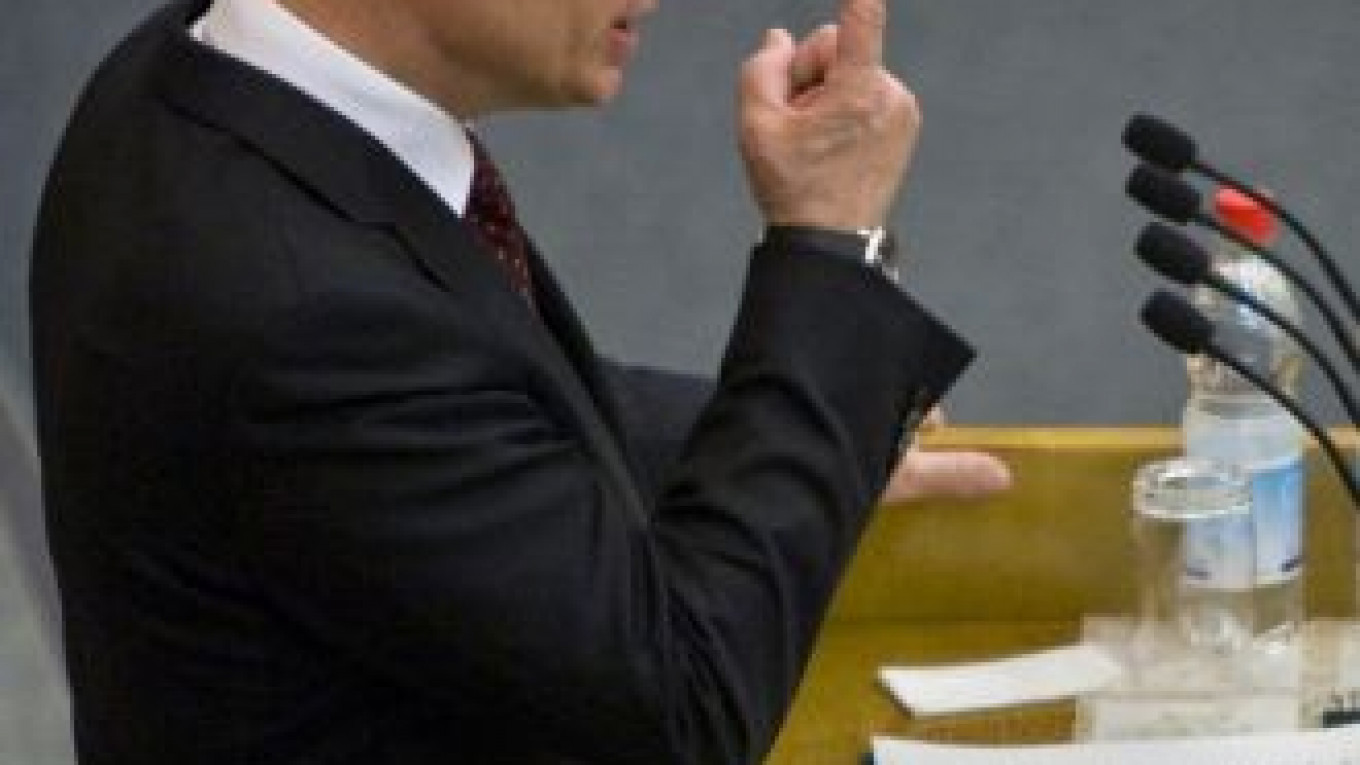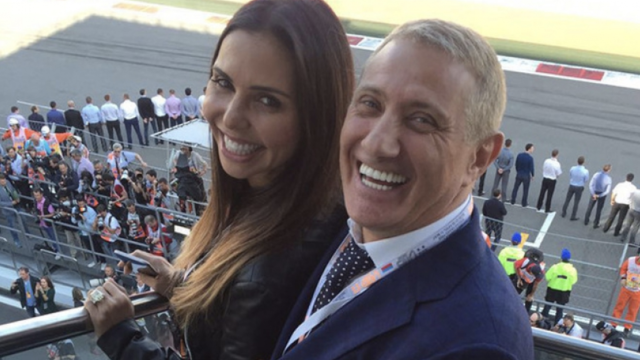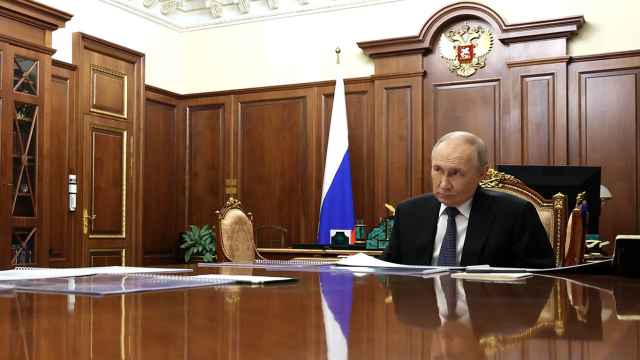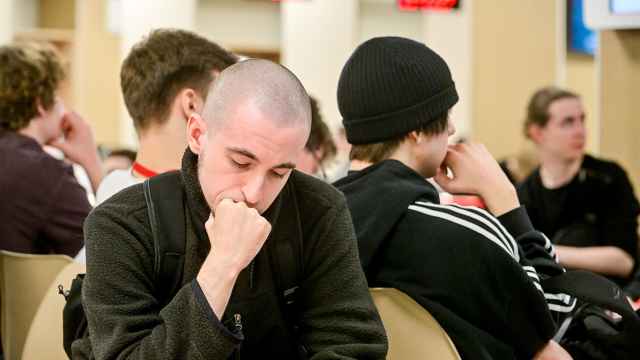Prime Minister Vladimir Putin on Tuesday announced $16 billion in new spending on health care over the next two years in a plan that may boost his popularity ahead of the next presidential election.
The government will raise the extra funding from higher payroll taxes that will take effect next year, Putin said in his second annual report to the State Duma. The health care tax will increase to 5.1 percent of the payroll from the current 3.1 percent.
It has been characteristic of Putin to enunciate generous state spending even after he stepped down as president in 2008. He has spent much time touting a major increase in retirement pensions due this year, another landmark decision that he is taking credit for.
Putin's latest fiscal statement, however, has a powerful enemy. In a rare public display of disagreement in the government, Finance Minister Alexei Kudrin, who had backed a delay of the tax hike, said he was "disappointed" and indicated that there was a chance Putin would reconsider the plan.
"I think we will have to hold serious discussions," he said, referring to the Cabinet, Interfax reported.
During the 80-minute speech, Putin also defended his government's record of grappling with the economic downturn, fielded 12 questions from Duma deputies and listened to verbal attacks from the Communists and shrill demands by Liberal Democratic Party leader Vladimir Zhirinovsky to fire Mayor Yury Luzhkov.
Putin indicated that he remained unswayed by criticism of the planned increase of the health care tax, which some economists have described as a threat to the rebounding economy that might cause companies to conceal much of their payments to employees. Initially scheduled to kick in this year, the increase was delayed because of the global economic meltdown.
"There is no sense in backtracking on a decision that has been made," Putin told the deputies. "Improvement of living standards and people's health is our key goal. It's something that we all ultimately are working for. It's something that we are developing the economy for."
Collected by the Compulsory Medical Insurance Fund, the health care tax will bring in an additional 460 billion rubles ($15.7 billion) in the two years after the hike, Putin said. The fund's tentative budget for the period already shows a sharp increase in its size.
Putin's estimate of the additional spending, however, appears to exceed those figures. The fund's spending for this year amounts to 111 billion rubles, growing to 269 billion rubles next year and to 298 billion rubles in 2012.
Putin's announcement suggested that the tax's extra 2 percent alone would boost the spending by 230 billion rubles in each of these years.
Additionally, Putin proposed that the new money go to a separate fund to be created within the Compulsory Medical Insurance Fund.
Regional authorities will bid to use the new funding for a comprehensive upgrade of hospitals and clinics and their equipment, purchases of drugs and better hospital food and salary raises for doctors, Putin said.
The country's health care system remains in a deplorable state even after several years of receiving increased spending as one of the four national projects, Putin said.
Health and Social Development Minister Tatyana Golikova said during a break in the session that the Cabinet would draft amendments to set up the new fund and send them to the Duma in May or June.
Looking back on the last year, Putin said he took pride in the efforts of his government to pull the economy out of a free-fall.
"Russia reacted to the crisis as it befits a strong state," he said. "It didn't wait for things to settle down by themselves but acted decisively and rigorously."
He took a dig at red tape, promising changes for the better as the government takes steps to reduce bureaucratic pressure on the economy, such as the abolition of licensing for several types of business earlier this year.
"They cavil at little things but don't see the real problems," Putin said of officials, recalling the deadly accident at the Sayano-Shushenskaya hydropower station and the fire that killed 156 people in a Perm nightclub last year.
Communist Party leader Gennady Zyganov, who wore a red necktie and a casually unbuttoned jacket, complained that Russia posted the biggest contraction of gross domestic product among the world's 20 most developed countries and suggested reintroducing a progressive income tax. He also urged to replicate the Soviet practice of charging higher taxes on vodka and the timber industry.
Putin responded that Russia's economy owed its dramatic drop to its commodity-based nature, which the government is trying to change.
Zhirinovsky, in his flamboyant manner of a showman, accused Luzhkov of running a corrupt City Hall and demanded that he leave his post. At one point, he began yelling at Communist Deputy Gennady Kulik, who apparently had made an offhand, critical comment about Zhirinovsky's speech.
"You belong in a prison cell, Kulik," Zhirinovsky yelled, prompting a reproof from Speaker Boris Gryzlov.
Gryzlov, when he took the floor, said United Russia applauded the work of the prime minister, who is the party leader, albeit not a member.
"There are and can be no differences between us because we are one party. We are United Russia," Gryzlov said theatrically.
Putin appeared to have a sore throat, coughing repeatedly during the speech. A Duma attendant served him several cups of tea as he spoke.
A Message from The Moscow Times:
Dear readers,
We are facing unprecedented challenges. Russia's Prosecutor General's Office has designated The Moscow Times as an "undesirable" organization, criminalizing our work and putting our staff at risk of prosecution. This follows our earlier unjust labeling as a "foreign agent."
These actions are direct attempts to silence independent journalism in Russia. The authorities claim our work "discredits the decisions of the Russian leadership." We see things differently: we strive to provide accurate, unbiased reporting on Russia.
We, the journalists of The Moscow Times, refuse to be silenced. But to continue our work, we need your help.
Your support, no matter how small, makes a world of difference. If you can, please support us monthly starting from just $2. It's quick to set up, and every contribution makes a significant impact.
By supporting The Moscow Times, you're defending open, independent journalism in the face of repression. Thank you for standing with us.
Remind me later.






